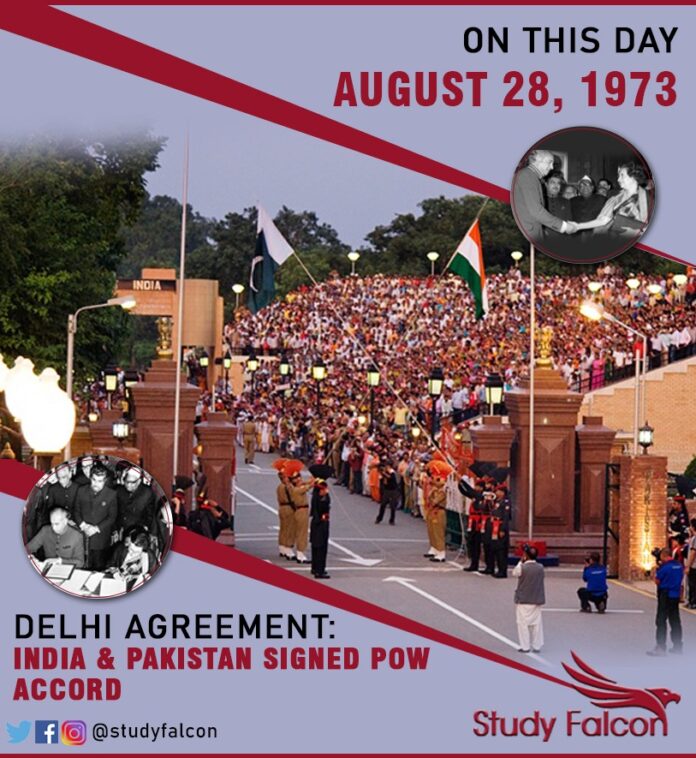Seventy-two years ago, just after India and Pakistan got their independence, the month of October 1947 witnessed massive diplomatic and military activity in New Delhi, Karachi (then capital of Pakistan) and Srinagar, the summer capital of the princely state of Jammu and Kashmir.
The Indian Independence Act of 1947 had put forth the legal basis for the departure of the British from the subcontinent, and guaranteed Partition. To make the transfer of power smooth, a standstill agreement was formulated on 3 June 1947 by the British Indian government, so that “all the administrative arrangements that existed between the British crown and the princely state would continue unaltered between the signatory dominions (India and Pakistan) and the state, until new arrangements were made”.

Pakistan launched ‘Operation Gulmarg’ by mobilising tribals from the NWFP on 22 October 1947. About 2,000 tribesmen, fully armed with modern weapons and under the direct control of Pakistan Army generals, entered Muzaffarabad in motor-buses and on foot. As the invaders captured Uri and Baramulla with minimal resistance from the Maharaja’s forces, the fall of Srinagar looked imminent. On 24 October, Maharaja Hari Singh appealed to India for military assistance to stop the aggression.
Again, Pakistan attacked India sometime later and a massive Indo-Pakistan war took place. After the surrender of Pakistan army in Indo-Pakistani War of 1971, about 93,000 Pakistani military personnel and civilians were taken to India as Prisoners of war (POWs). The UNO Security Council passed a resolution on December 21, 1971 calling upon the parties to observe the Geneva Convention and not to attach any conditions to the repatriation of the POWs. Article 118 of the Geneva Convention (1949) puts it as a condition that Prisoners of War must be repatriated immediately after the cessation of active hostilities. It also stipulates that detaining power is obliged to work out a plan for their repatriation.
The humanitarian problems arising in the wake of the tragic events of 1971 constituted a major obstacle in the way of reconciliation and normalisation among the countries of the sub-continent. In the absence of recognition, it was not possible to have tripartite talks to settle the humanitarian problems as Bangladesh could not participate in such a meeting except on the basis of sovereign equality. On April 17, 1973, India and Bangladesh jointly proposed that the problem of the detained and stranded persons should be resolved on humanitarian considerations through simultaneous repatriation of all such persons except those Pakistani prisoners of war who might be required by the Government of Bangladesh for trial on certain charges.

Following the Declaration there were a series of talks between India and Bangladesh and India and Pakistan. These talks resulted in an agreement at Delhi on August 28, 1973 between India and Pakistan with the concurrence of Bangladesh which provided for a solution of the outstanding humanitarian problems. In pursuance of this Agreement, the process of three-way repatriation commenced on September 19, 1973. So far nearly 300’000 persons have been repatriated which has generated an atmosphere of reconciliation and paved the way for normalisation of relations in the sub-continent.
Bangladesh in the tripartite meeting envisaged in the Delhi Agreement, on the basis of sovereign equality. Accordingly, His Excellency Dr. Kamal Hossain, Foreign Minister of the Government of Bangladesh, His Excellency Sardar Swaran Singh, Minister of External Affairs, Government of India and His Excellency Mr. Aziz Ahmed, Minister of State for Defence and Foreign Affairs of the Government of Pakistan, met in New Delhi from April 5 to April 9, 1974 and discussed the various issues mentioned in the Delhi Agreement, in particular the question of the 195 prisoners of war and the completion of the three-way process of repatriation involving Bangalees in Pakistan, Pakistanis in Bangladesh and Pakistani prisoners of war in India.

India declared as an afterthought that Pakistan Army had surrendered to joint command of India and Bangladesh and therefore it was not within the jurisdiction of India to repatriate the prisoners of war on its own. On August 28, 1973 India and Pakistan signed an agreement in Delhi to repatriate 93000 civil and military prisoners of war to Pakistan. Bengalis in Pakistan were to be returned to Bangladesh.
In the light of the foregoing and, in particular, having regard to the appeal of the Prime Minister of Pakistan to the people of Bangladesh to forgive and forget the mistakes of the past, the Foreign Minister of Bangladesh stated that the Government of Bangladesh had decided not to proceed with the trials as an act of clemency. It was agreed that the 195 prisoners of war may be repatriated to Pakistan along with the other prisoners of war now in the process of repatriation under the Delhi Agreement.
Recognition of Bangladesh by Pakistan in February 1974 led to rapprochement between the two countries. A tripartite agreement between India-Pakistan-Bangladesh signed in April 1974 resolved all contentious issues related to 1971 war and paved the way for return of 195 war criminals as well. The last batch of prisoners of war reached Lahore in April 1974.










